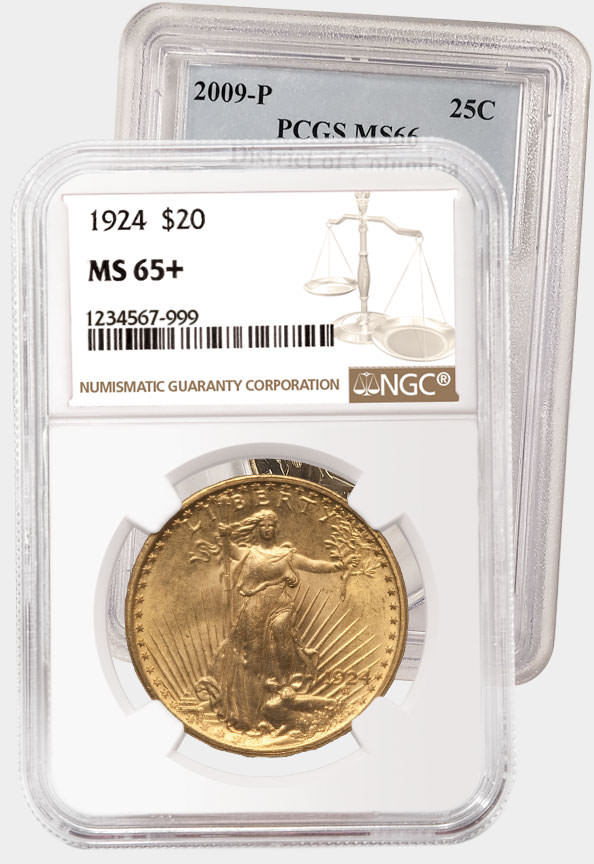NCS Conservation: A Range of US Coins Benefit from Residue Removal
Posted on 12/13/2022
Numismatic Conservation Services™ (NCS®) uses a variety of proprietary techniques to remove harmful contaminants, stabilize and protect a coin's surfaces and, in many cases, improve a coin's eye appeal. After coins are conserved by NCS, they are seamlessly transferred to Numismatic Guaranty Company™ (NGC®), an independent affiliate of NCS, for grading and encapsulation.
Below are a few highlights of coins that were recently conserved by NCS and graded by NGC.
Even highly prized coins can develop unattractive residues. This Proof 1900 Morgan Silver Dollar was recently submitted for NCS conservation to address the blue and white residues that were largely obscuring the reflective mirrored fields. Opaque residues such as on this Dollar can hide original surfaces preventing the coin from displaying its true beauty.
Care must be taken when removing PVC residue from such otherwise pristine coins as to not damage the delicate mirrored surfaces underneath. By removing the unattractive residues, this Morgan Dollar was able to again be bright and reflective with a bold cameo. After skillful conservation, this coin was able to grade very well with NGC.
Gold coins, just as those of many other metallic alloys, can develop residues that both obscure the original surface as well as hide a coin’s true beauty from shining through. This 1926 Gold Indian $10 was submitted with heavy white residues that were obscuring the surface. Heavy residues such as what was seen here can often cause permanent damage. With careful conservation work this gold coin was revealed to be lustrous with a pleasant coloring. It was able to grade numerically with NGC following the professional conservation.
Long-term storage in inferior coin holders can cause potentially damaging residues. This Proof 1970 Dime struck from a die missing the crucial S mintmark was recently submitted to NCS to remove a multicolored greasy appearing residue that had developed evenly on both sides of the highly desirable modern piece. More advanced stages of residue development such as what was seen here lead to concern with the beginning stages of corrosion to the surface underneath. Luckily for this important modern coin, after all residues were carefully removed, it was able to grade well with NGC.
For more information about NCS, visit NGCcoin.com/NCS.
Interested in reading more articles on NCS Conservation? Click here.
Stay Informed
Want news like this delivered to your inbox once a month? Subscribe to the free NGC eNewsletter today!












